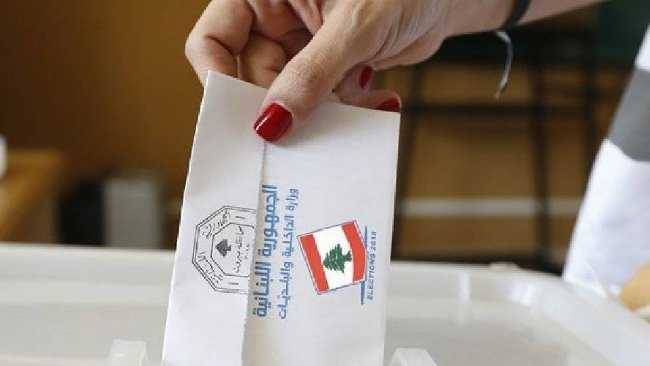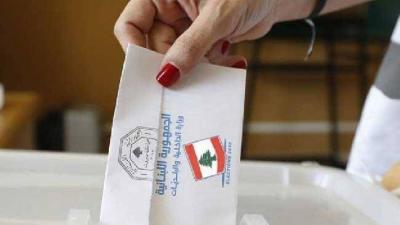This morning, ballot boxes were opened for employees participating in the parliamentary elections taking place across Lebanon next Sunday. Voting began in the first and second electoral districts of Beirut, after which employees prepared to receive the ballot box and other materials for the center where they will oversee the voting process, all happening in a calm and orderly setting.
It is noteworthy that the voting centers for Beirut's second district include 700 voters, while the first district has 70 voting employees. Beirut's first district encompasses Ashrafieh, Al-Madwar, Al-Rmeil, and Al-Sayfi, while the second district includes Al-Mazraa, Dar Al-Mreiseh, Ras Beirut, Zokak Al-Blat, Al-Masaitbe, Al-Bashoura, the Port of Al-Hosn, and the harbor.
In Marjeyoun, ballot boxes were opened for the employees of the judiciary, totaling 529, in one voting center inside the Marjeyoun government headquarters, attended by the European monitoring mission, the LADE Association, and candidates' representatives, all under the supervision of the Marjeyoun governor, Wassim Hayek, accompanied by security measures from the army and internal security forces around the polling station.
Ballot boxes were also opened at the official mixed secondary school in Tyre, where the army implemented security measures in the vicinity to ensure electoral safety, while internal security forces facilitated the voting process inside. A total of 880 male and female voters are scheduled to cast their votes across two polling stations.
In Zgharta, the voting process began with 227 employees in one polling center. Zgharta's governor, Iman Al-Rafei, arrived early to oversee the electoral process.
In Akkar, Akkar's governor lawyer Imad Al-Labaki toured the polling stations starting at 6 AM to ensure readiness for the electoral process. Voting commenced at 7 AM, with 1888 male and female voters expected to vote across four polling stations at the Halba government headquarters, in the presence of monitors from the European observation mission in Lebanon and representatives from the Lebanese Association for Democratic Elections and eight candidate lists in Akkar.
Employees began heading to Halba headquarters to cast their votes for seven representatives in Parliament from a total of 50 candidates across eight lists, amidst security measures maintained by the internal security forces around the headquarters and the polling stations.
Voting for employees in Batroun was also conducted under necessary security measures and with the presence of candidate representatives. The number of voters is 286, who will vote in one polling station located in the courthouse hall, and Batroun's governor, Roger Toubia, arrived before the polling station opened to monitor the process.
In Tripoli, ballot boxes opened on time as 771 employees will cast their votes in two polling stations, with heightened security measures implemented by internal security forces around the headquarters, alongside strict army measures on major and minor roads and intersections.
In Zahle, public administration employees and teachers—totaling 536—began arriving on the second floor of Zahle headquarters from 7 AM to vote at two polling stations allocated for them, attended by representatives from competing lists in the Bekaa's first district, all conducted in a calm atmosphere with security measures taken by security forces both inside and around the headquarters.
The voting for employees in the Jezzine district is also taking place in a calm environment, with 230 voting employees in one polling station within the Jezzine government headquarters, under the supervision of Jezzine's governor Yahya Hamidi Saqr and the presence of the European monitoring mission and candidates' representatives, alongside security measures by internal security forces.
Additionally, at 7 AM, the ballot box in Jounieh headquarters was opened, with internal security measures in place and representatives from the lists present to oversee the electoral process. A total of 132 voters are expected to vote.




